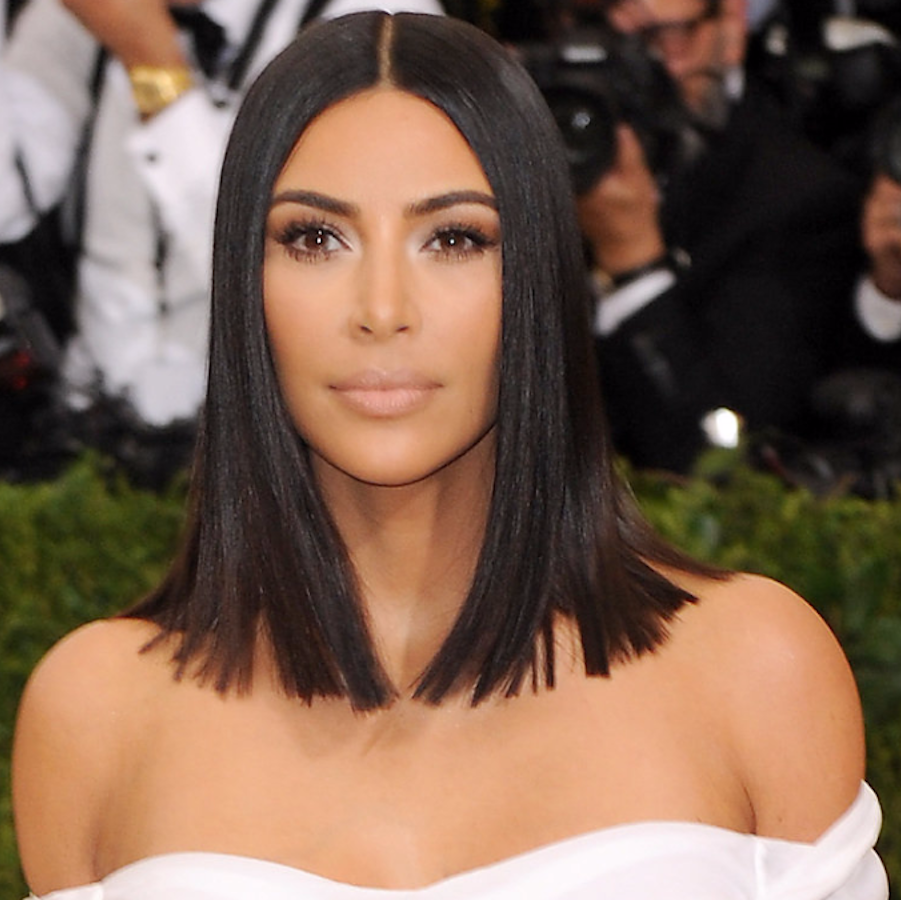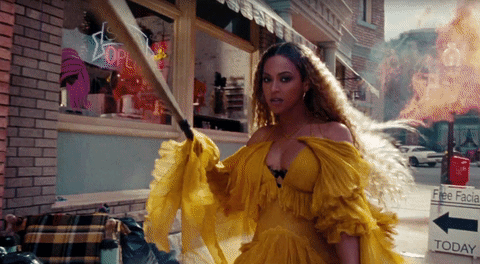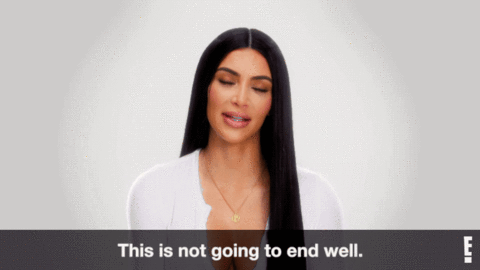
Mainstream media publications have a sick habit when it comes to their coverage of the Kardashian/Jenner crew, especially Kim Kardashian.
The cycle goes as follows: Kim Kardashian wears anything that black women wear and have worn for years. A mainstream publication deems it cool. The publication proceeds to flaunt how little it knows about the culture that Kardashian's looks are oft-inspired by with a story and headline that positions her as some sort of style innovator or reviver.
Twitter users proceed to call out the publication on its crap. Said media publication ignores the valid critiques because it's checked off its Kardashian coverage for the day and could not care less about the cultures slighted in the process.
The most recent culprit is none other than the fashion giant Vogue magazine.
The OG fashion platform published an article titled "Kim Kardashian West Is Bringing Crimped Hair Back In A Big Way."
Vogue? Sis? You gotta do better.
How exactly can an individual bring back a hairstyle that never left? More important, why are the black women who still wear this exact style being overlooked? How can anyone really believe Kim Kardashian is the first big name to wear crimps since the 1990s and early 2000s? And since she isn't "bringing back" this style in any way, why is this the headline's angle in the first place?
Twitter promptly called Vogue out on its headline that positions Kardashian as some sort of throwback queen.
"Beyoncé and Nicki Minaj wore crimped hair for a full era, and Bey still wearing it….but Kim wears it once and she's bringing it back in a big way? Wow…," one user wrote. "Kim K: *breathes.* Vogue: Kim Kardashian is bringing oxygen back in a big way!"
Pretty much.
They want Vogue to know just how late the magazine and Kardashian are to the crimp game.
"'Crimped hair.' You mean Yaki weave? The same style that has been rocked before time by black women, Kim K DID NOT bring it back! It never went anywhere," a Twitter user wrote.
People began DUMPING examples of famous black women wearing the exact same high ponytail with crimped hair.
By "famous black women," I do mean Nicki Minaj, Rihanna, Beyoncé, and (the mother of them all) Janet Jackson. Did Vogue forget these women? It's unfortunate but expected that Vogue wouldn't be privy to how many black women still regularly wear this style in their local schools, to their jobs, and anywhere else they are out and about living life.
But how did Vogue overlook four black women who are arguably more famous and influential than Kim Kardashian?
Janet Jackson just wore the exact crimped high ponytail Kardashian "brought back" back in January ...
Vogue, what's good? This is from January. Three months ago. Where was the headline about Janet Jackson "bringing back" crimps?
In fact, Janet Jackson practically LIVES in the crimped high ponytail.
These crimps (like those cheekbones) are honestly Jackson's calling card, so how did Kardashian bring these "back." Were they lost? Did they run away? The culture could have sworn that the Google Maps location for crimps was pinned directly to Jackson's head.
Oh, Vogue. I present to you: Kelly "Destiny's Child" Rowland, with — wait for it — crimped hair!
These are, indeed crimps, right? Right!
I could really go on a Beyoncé picture-posting spree because she regularly crimps her hair as well.
Remember the iconic Coachella 2018 performance? 'Twas only one year ago. Beyoncé showed up and showed out in all of her crimped hair glory.
And just because one can never see too many Beyoncé images, here is Mrs. Knowles-Carter again with crimps.
This is 2017. Beyoncé was being very stingy with her Instagram photos that year, but the queen couldn't resist posting a series of photos in which she wore her signature crimps.
BET also chimed in with a headline of its own.
"Welp: Vogue Once Again Credits Kim Kardashian For Starting A Trend Black Women Have Been On For Decades," the BET headline reads. The shade!
So, the question of the day remains: Who exactly is Kim Kardashian bringing crimps back for again?

Perhaps media publications should just admit an obvious truth: They still have not figured out the proper way to cover Kardashian and her equally famous family after all of these years. No matter how many times these platforms — which are supposed to be the purveyors of correct information — get called out for improperly crediting white women for creating or rebooting styles, they continue to repeat this mistake.
Why?
The solution is easy: Media outlets need to realize the harm in crediting white women like Kim Kardashian with style contributions they did not make.
I get it. Kim Kardashian is easy clickbait, and she's also one of the last great mega-influencers. However, influencers are not always originators or creatives. Furthermore, crediting a white woman with "bringing back" a style that black women — including some of the most famous and powerful black women of the century — wear all the time is undermining. That story angling perpetuates the idea that nothing in the creative realm matters until a white woman does it.
And that silly paradigm is why the fashion and beauty industries are still in such an unfortunate place where diversity and inclusion are concerned.
One of the first times I saw mainstream media outlets position Kardashian as the inspired influencer that she is was with her most recent channeling of OG supermodel Naomi Campbell.
"I think Kim K copying Naomi is one of the few times I've seen white media cover Kim K's fashion the way it needs to be covered," I wrote on Twitter when Vogue first spewed the nonsense about Kim K and crimps. "The woman is a spectacle for sure. Huge star. For sure. But groundbreaker? Trendsetter? Originator? Innovator? No ma'am. Relax. Breathe."
There is nothing wrong with Kardashian being inspired by so many black women in fashion's history, but media outlets need to approach their coverage of her style with that in mind.

If Kardashian and her glam squad can put black women in the center of their vision boards, then why can't they make it to the articles that these magazines and websites write about her? The omission feels purposeful, but if that isn't the case, then we have another problem: Where are the black people in these Slack channels and board meetings where the content initially gets discussed? Who is giving this poorly thought out content the OK?
In 2019, we should be so beyond the "OMG, Kim K just started/revamped a thing" headlines. It has been repeatedly proven that she starts, revamps, and reinvents very little.




